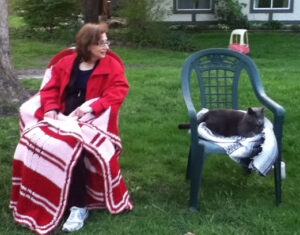Part 3 – Types of Relationships

Dallas Willard, describing the state of our modern relationships, says, “[our] most intimate relations are tangles of reciprocal harm, coldness, and resentment.” It’s hard to disagree with Willard when one looks at the society around us. And though there are many healthy relationships we can point to, if we honestly survey our own network of family and friends I think we have to concur with Willard. Relationships currently are not our strong suit. But why?
No help from culture
The answer to the question of why we are experiencing such brokenness in our relationships is complex. Volumes are written to address this very question, but it doesn’t seem to be helping us. In fact, one could argue that we are less successful in our relationships today than previous generations. It seems evident that we lack some basic understanding of how relationships work. Perhaps this knowledge was unconsciously transmitted to previous generations through traditions, customs and conventions. This would explain why today we are apparently lost at sea when it comes to building healthy relationships, since this generation is characterized by the wholesale discard of tradition and conventional morals.
Since we can’t count on culture to effectively educate us on forming intimate relationships that are warm and enduring, we’re going to need to be much clearer about the nature of relationships than our parents and grandparents were. A helpful book I have found for understanding relationships is Vincent Brummer’s The Model of Love. In this theological work Brummer describes three categories of relationships: manipulative, rights and duties, and mutual fellowship. It’s impossible to do justice to this brilliant work in a blog post, but for the sake of brevity I’ll sum these ideas up with three keywords: control, contract, and communion.
Control
A manipulative relationship is characterized by control. One party tries to control another party. The controlled one is not given the respect and dignity of being a free person. They are a means to some end. The controller attempts to use them. A variety of techniques can be employed to manipulate someone – emotional appeals, altering circumstances, and outright force. In each case the controlled is treated as less than a person.
A warm relationship means that there is good will between the partners. A manipulator is primarily concerned with their own good and simply wants to instrumentalize the other in order to achieve it. While a manipulative relationship can appear warm, it’s superficial. Once the controlled person is no longer needed they will be handily discarded. Trust is eroded because one cannot trust someone who intends to only use them. Therefore this kind of relationship fails in the three things that make for good relationships – respect, trust and loyalty.
Contract
A relationship of rights and duties is one in which the partners collaborate together for some shared benefit. It’s a negotiated arrangement of cooperation. It’s obvious that working together can bring about beneficial results. Human welfare is dependent upon such arrangements and we encounter them in daily life through commerce and employment. We contract with others, explicitly or implicitly, to exchange labor, money, or other things for some benefit we deem valuable. In those contracts we have some duty (to hand over money or do some work) and we have some right (to get a product or receive a paycheck).
Respect, trust and loyalty make relationships of rights and duties function well. When any of these elements are weak or missing, you end up having a violation of expectations, which ultimately damages the relationship. Our courts are jammed with cases of contract violations. People’s expectations in some shared venture have been violated and the legal system is used to insure that one’s rights are enforced. Employees feel they have been unfairly treated. Customers are disappointed with their purchase. Suppliers can’t collect on their deliveries. Relationships of rights and duties are necessary for our well-being and they require virtue. But they can’t serve our need for communion.
Communion
Mutual fellowship relationships are friendships, or what we might call, love relationships. This type of relationship is characterized by affection and doesn’t serve some mere utilitarian purpose. The partners want to be together because they enjoy one another and are interested in each other’s welfare. Mutual fellowship relationships are full of meaning and are the kind of relationships that make life worth living. If respect, trust and loyalty are needed to have a good contractual relationship, they are essential to experience mutual fellowship. Like no other type of relationship, a person’s very being is on the line when they enter a friendship or love relationship, which makes virtue an indispensable ingredient. Family, marriages, friendships and romantic relationships are all mutual fellowship relations. Communion is the objective and freedom of the individual is the defining characteristic.
As we’ve seen, respect, trust and loyalty make for good relationships. But understanding the type of relationship we’re pursuing is just as important. Confusing the objectives or behaviors associated with one kind of relationship with another is a formula for disaster. If we want a friendship we best not try to pay for it. If we are purchasing a box of cereal we shouldn’t use affection to try to get a better price. And finally, if we trick or force people to relate to us we can only expect coldness and resentment. In other words, we must try to not be relationally dumb.
In future posts I’ll explore these ideas more closely.